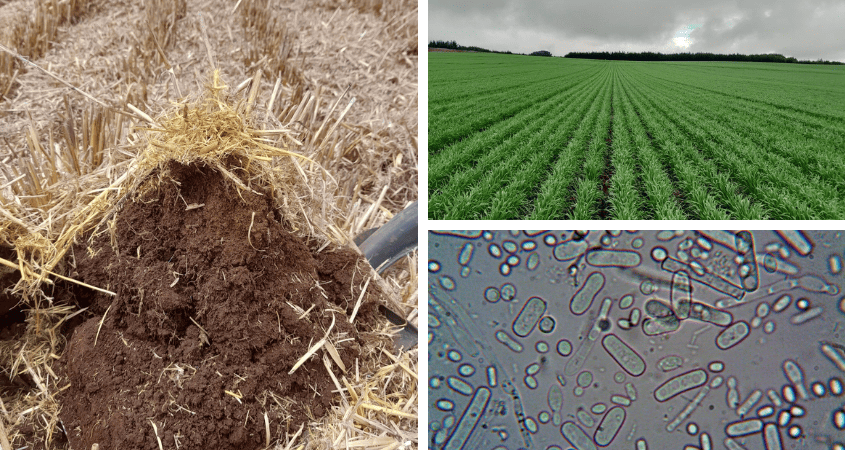
Beneficial soil microorganisms can suppress soil-borne plant diseases through various mechanisms:
Antagonism: Some soil microbes act as natural antagonists to plant pathogens. They produce antimicrobial compounds that inhibit the growth and activity of harmful microorganisms. This biocontrol mechanism reduces the incidence and severity of diseases.
Competition for Resources: Beneficial microbes compete with pathogens for space and nutrients in the rhizosphere. By outcompeting pathogens, they limit their ability to infect plant roots.
Induced Systemic Resistance (ISR): Certain soil microbes induce systemic resistance in plants. They trigger the plant’s defense mechanisms, making it more resistant to diseases. This enhanced resistance is a proactive way to protect plants from pathogens.
Disease Suppression Through Nutrient Competition: Some beneficial microbes consume the same nutrients as pathogens. This competition for nutrients deprives pathogens of essential resources, reducing their virulence.
In conclusion, soil microbiome activity and diversity are integral to plant growth, nutrient cycling, and disease control in agricultural and natural ecosystems. They enhance plant health and productivity, ensure efficient nutrient cycling, and provide a natural defense against soil-borne diseases. Nurturing a diverse and balanced soil microbiome through sustainable agricultural practices is essential for optimizing crop yields while minimizing the need for chemical inputs.
Order our services and get to know how to improve your soil for better yeilds.